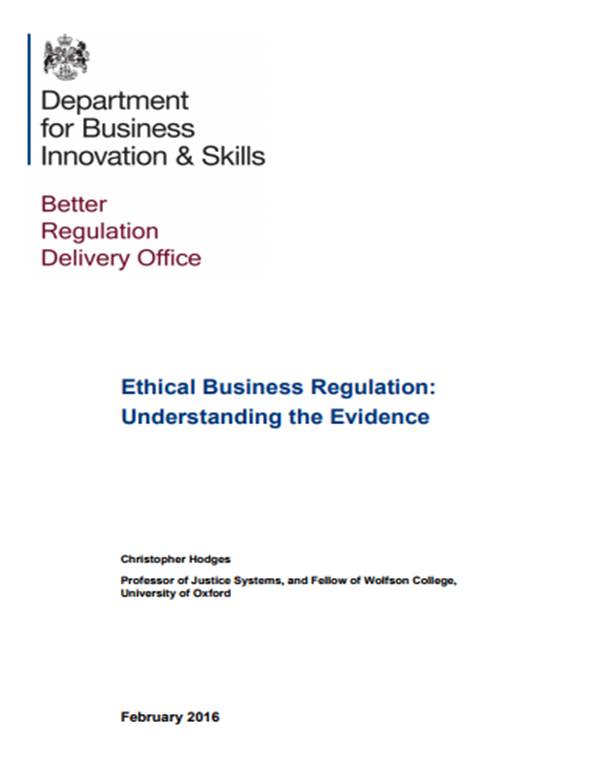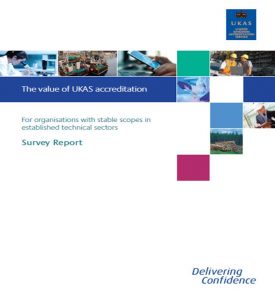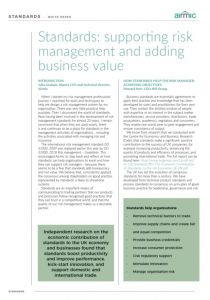Research
Accreditation cited as a tool to achieve ethical regulation
In November 2015, the UK’s Better Regulation Delivery Office (BRDO) commissioned Professor Christopher Hodges to produce a brief introduction to examine the theories and practice of how to control corporate behaviour through regulatory techniques, drawing on the principal theories of deterrence, economic rational acting, responsive regulation, and the findings of behavioural psychology.
The paper provides regulators and others with an interest in developments in regulatory delivery with an overview of the research theories and empirical evidence, and of the author’s proposition of a new theory of ‘ethical regulation’.
The basic idea is one of a collaborative approach between businesses, their stakeholders and public officials, based on a shared ethical approach. It recognises that compliant behaviour cannot be guaranteed by regulation alone, and that ethical culture in business is an essential component that should be promoted and not undermined. It also notes that regulatory and other systems need to be designed to provide evidence of business commitment to ethical behaviour, on which trust can be based, and that regulation will be most effective where it is based on the collaborative involvement of all parties.
The paper cites the use of accreditation as an example of collaboration between regulators and businesses in the management of risk and compliance.
A copy of the report is available on the Government’s Better Regulation website.





